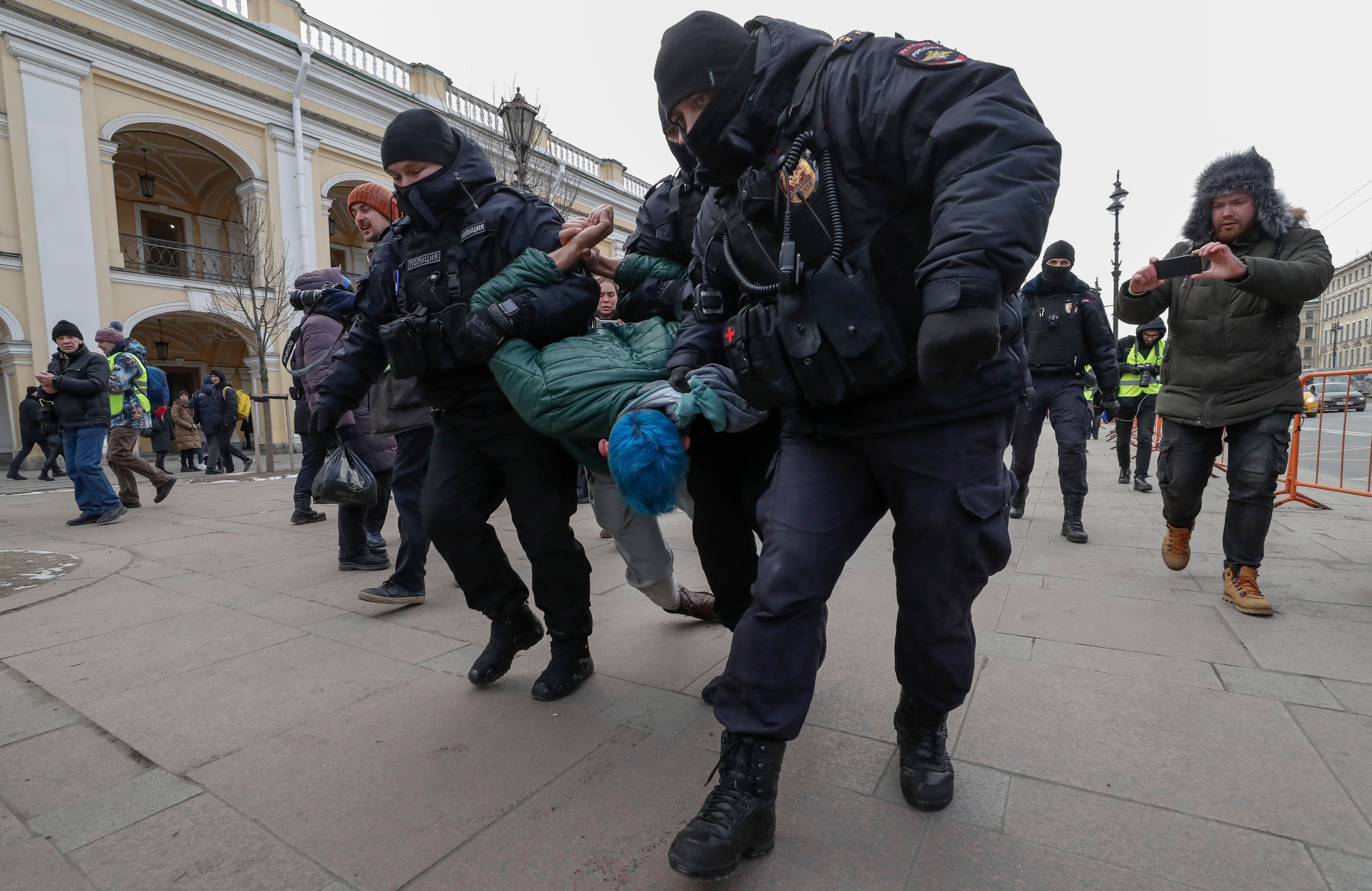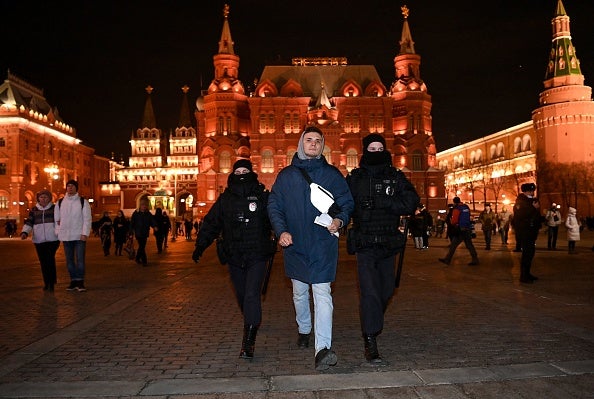Ukraine invasion: How many anti-war protesters have been arrested in Russia?
Under new legislation, anti-war protesters in Russia can be jailed for up to 15 years
Your support helps us to tell the story
From reproductive rights to climate change to Big Tech, The Independent is on the ground when the story is developing. Whether it's investigating the financials of Elon Musk's pro-Trump PAC or producing our latest documentary, 'The A Word', which shines a light on the American women fighting for reproductive rights, we know how important it is to parse out the facts from the messaging.
At such a critical moment in US history, we need reporters on the ground. Your donation allows us to keep sending journalists to speak to both sides of the story.
The Independent is trusted by Americans across the entire political spectrum. And unlike many other quality news outlets, we choose not to lock Americans out of our reporting and analysis with paywalls. We believe quality journalism should be available to everyone, paid for by those who can afford it.
Your support makes all the difference.A total of 12,700 people have been detained in Russia over the last 13 days during anti-war protests, the UN has confirmed.
Around a third of this number were arrested during large-scale demonstrations across Russia on Sunday. The OVD-Info protest monitoring group said more than 4,300 were taken into custody that day in 56 different cities, while the Russian interior minister put the figure at 3,500.
A total of 1,700 people were arrested in Moscow and another 750 in St Petersburg on Sunday, according to the state-run Tass news agency.
“The screws are being fully tightened - essentially we are witnessing military censorship,” Maria Kuznetsova, OVD-Info’s spokesperson, said.
In an attempt to deter public protests, the Kremlin introduced a law last week that outlaws the spreading of “fake news” about the Russian military. Under the legislation, anti-war protesters can be jailed for up to 15 years.
A second law that criminalises independent war reporting was also enacted on the same day.

“These new laws are part of Russia’s ruthless effort to suppress all dissent and make sure the population does not have access to any information that contradicts the Kremlin’s narrative about the invasion of Ukraine,” Hugh Williamson, Europe and Central Asia director at Human Rights Watch, said.
The UN also stressed that public freedoms were shrinking in Russia as Vladimir Putin tries to dominate the narrative around Russia’s attack against Ukraine, banning people from using the words “war” and “invasion” to describe it.
“The ability to criticise public policy in Russia, particularly its invasion of Ukraine, is narrowing, with some 12,700 people unlawfully detained in anti-war protests,” the UN’s most senior human rights official said on Tuesday.
"I remain concerned about the use of repressive legislation that impedes the exercise of civil and political rights and criminalising non-violent behaviour," Michelle Bachelet added.

Commentators like the Kremlin critic Nadya Tolokonnikova, who co-founded the protest punk rock group Pussy Riot, said the number of Russians who opposed Putin’s war was high.
A poll released by the imprisoned opposition leader Alexei Navalny appeared to confirm this view. It found that 36 per cent of Russians blamed their country for the war on 3 March, more than twice the percentage that did so on 25 February, the day after the invasion started.
In recent days, the internet has been awash with videos of Russians attending rallies against the invasion of Ukraine.
One of the most notable clips shows a 77-year-old activist being arrested by security forces for holding two anti-war placards encouraging soldiers to stop fighting.
“What sort of government is scared of a little old lady holding placards?” one social media user wrote in response.

Join our commenting forum
Join thought-provoking conversations, follow other Independent readers and see their replies
Comments